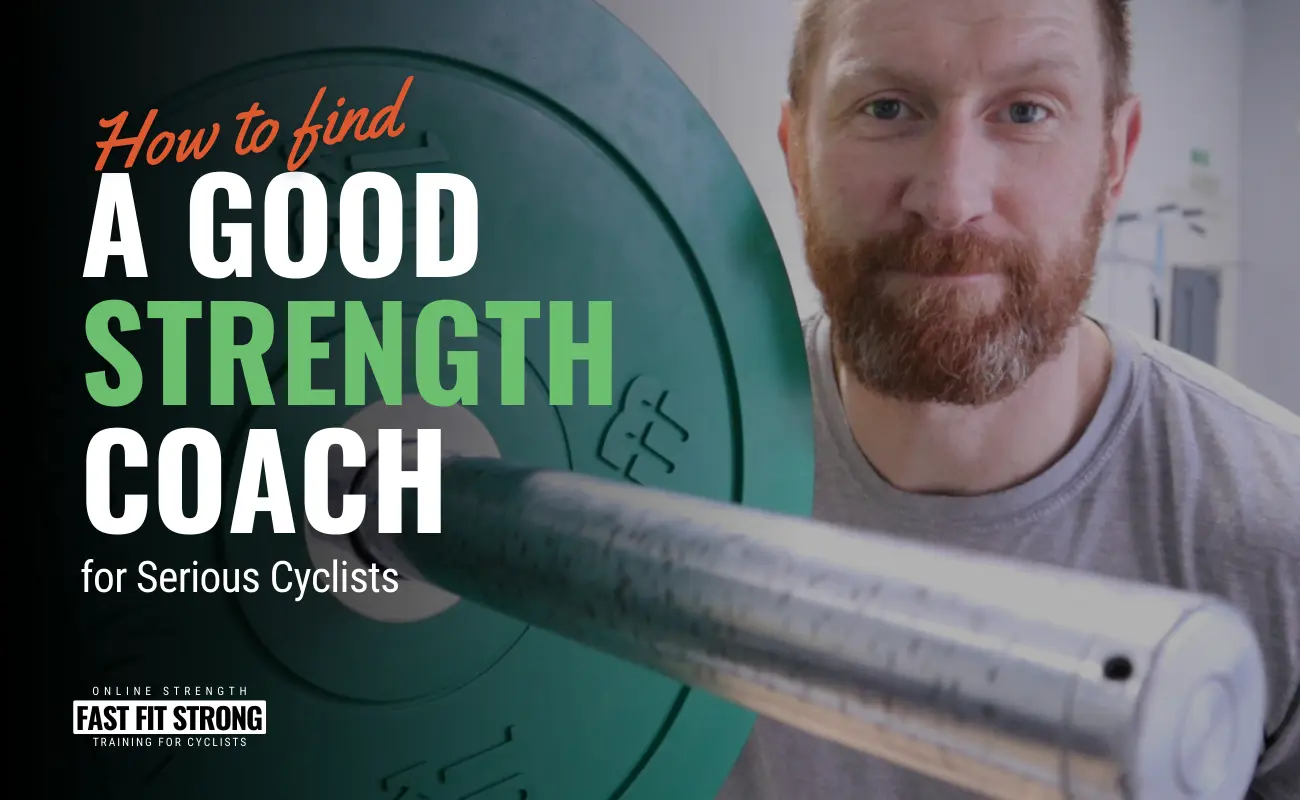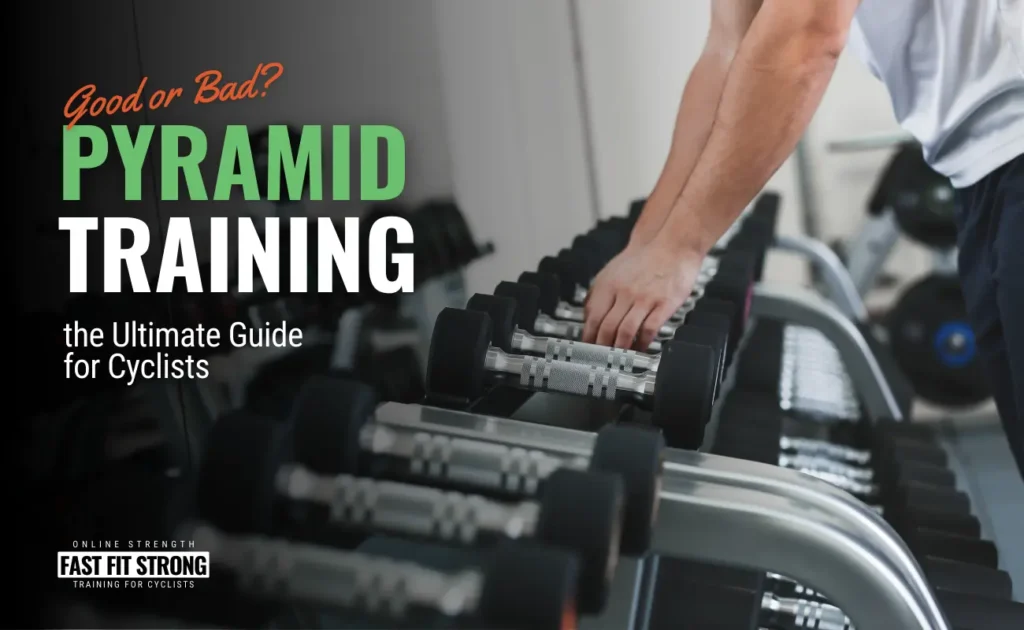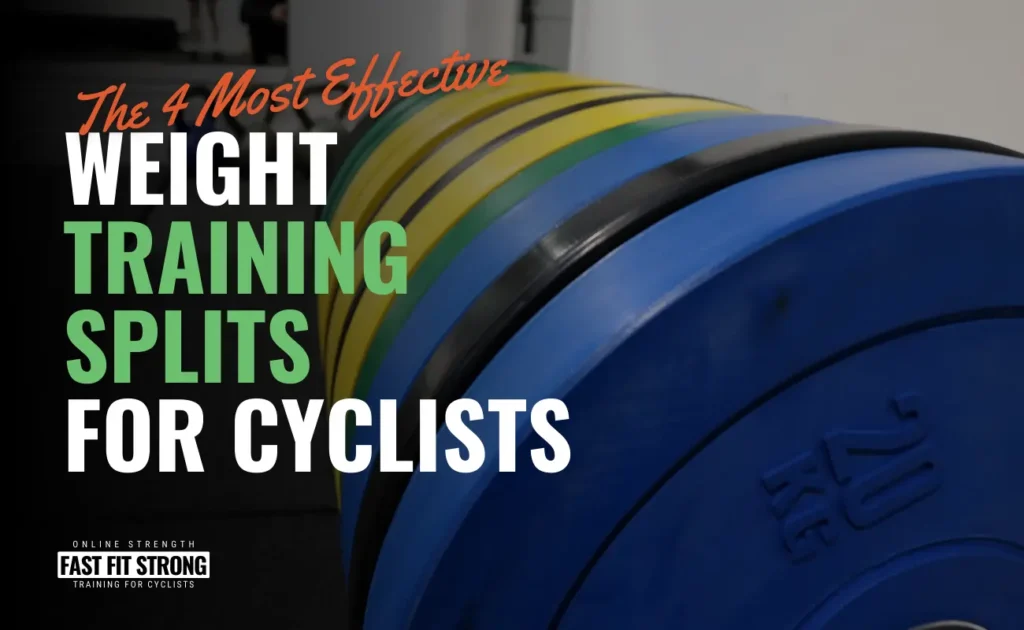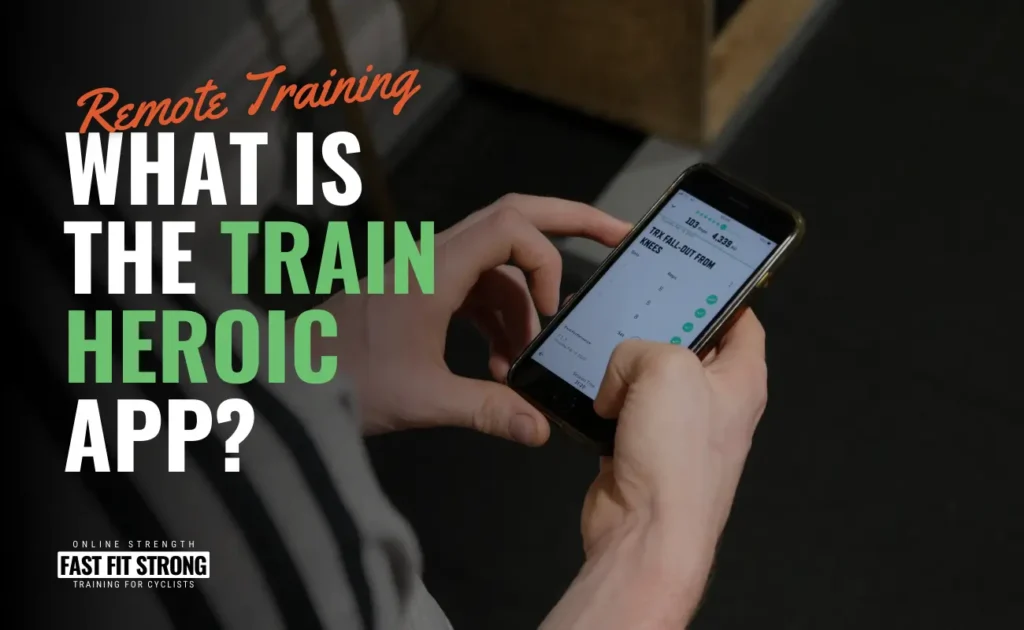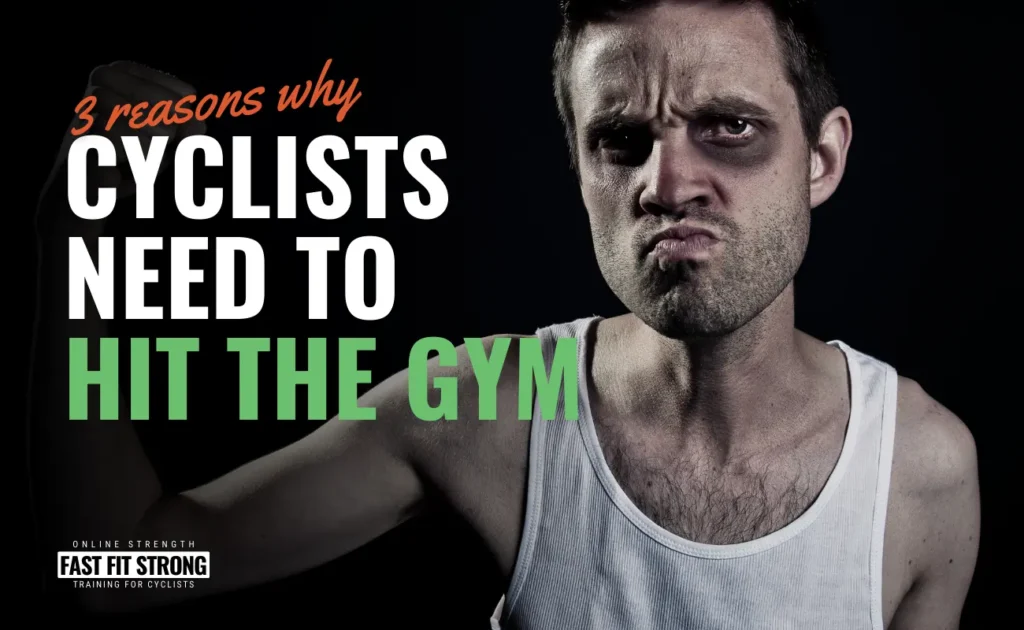Introduction.
As a cyclist who wants to get better, you may follow a training program you’ve seen on the internet. You might even follow along with some kind of training app, but if you’re really serious about improving, it’s more than likely that you’ve invested in a coach.
Working with a dedicated coach takes the stress out of the planning, so all you need to do is get on your bike and ride, safe in the knowledge that your coach is there for you.
Why then, given that the case for strength training benefitting cyclists is unequivocal don’t more riders invest in a strength coach in the same way?
Even if you as a rider have got past all the myths and misconceptions of strength training itself, it’s likely that you are uncomfortable in a gym environment, or you don’t know what to look for in a good strength coach for cyclists.
So, in this article, I intend to highlight some of these misconceptions and give you some advice on what to look for in a good-quality strength coach that will boost your power and reduce your injury rate…
Strength Coach Misconceptions.
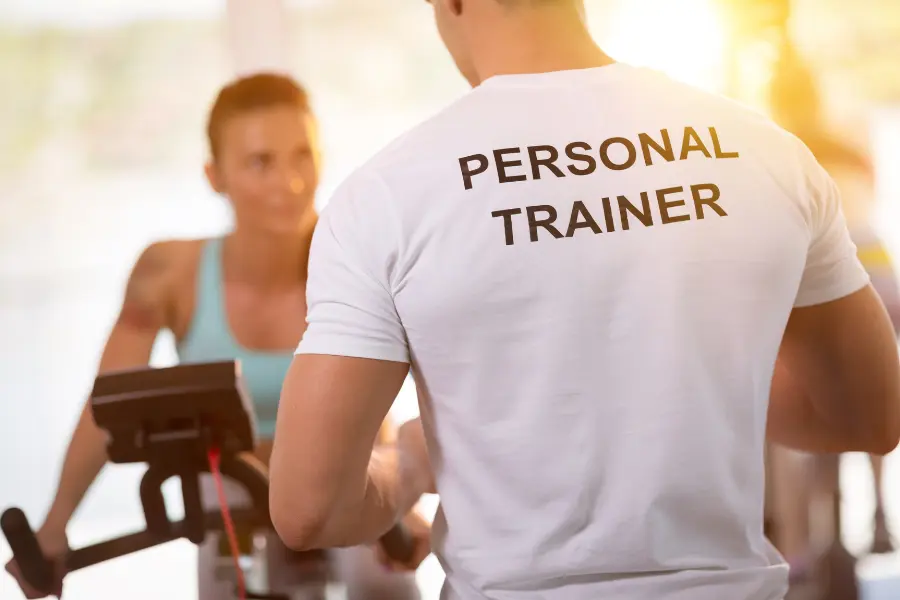
Misconception #1 – A journalist isn’t a Strength Coach.
Be very careful about following advice from magazines and articles (apart from this one. Ha).
Let’s be clear, the aim of the magazine is to sell as many copies as possible. This is done through sensationalism and introducing every fad as the new “must have”, whereas good quality coaching rightly concentrates on mastering the basics and following evidence-based training principles to get better over the long term.
Unfortunately, what’s right isn’t sexy.
Misconception #2 – A “Personal Trainer” isn’t a Strength Coach.
Searching on the internet or looking in your local gym won’t get you what you are looking for. Personal trainers are not strength coaches and will not have the skill set required to keep you injury-free alongside your riding program.
The barrier to entry as a personal trainer is woefully low – Getting qualified as a personal trainer takes little more than a weekend course and a multiple-choice exam.
It’s like hiring a spin-class instructor as your cycling coach. Yes, at first glance they are similar, but they are fundamentally different… a spin instructor’s job is to get Joe Public to lose some weight in an enjoyable, challenging environment. A cycling coach has more specific aims and the same is true when it comes to personal trainers and strength coaches.
A personal trainer is (usually) there for the general public to lose some weight, increase some muscle and feel better about themselves, whereas a strength coach has the objective of improving specific metrics (alongside your riding) and making sure you remain injury-free.
Please don’t think I’m disrespecting personal trainers or spin instructors. I’m not…I’ve done both and they have their challenges. What I’m saying is that they are different things. If you need a strength coach, get a strength coach!!
Misconception #3 – A Cycling Coach isn’t a Strength Coach.
As more and more riders are waking up to the fact that getting off your bike and getting into the gym can actually be beneficial to your riding ability (not to mention your general health and well-being), I’ve seen an increasing amount of cycling coaches offer strength training as part of their coaching packages.
While I don’t think there’s anything wrong with this per se (assuming they have the relevant insurance, etc, should anything go wrong), you have to remember what you’re dealing with.
Some of my coaching packages include on-bike work, but do you think they will be as good as a program written specifically by a cycling coach? Of course not!
If I have a problem with my shower, I don’t call a handyman, I get someone who’s qualified in the specific trade I need and call a plumber. The same is true with your training…
Misconception #4 – A Good Ex-Athlete isn’t a Strength Coach.
As tempting as it might be to be associated with someone who may have been one of your idols at one time, it is unlikely that someone who’s been a top athlete is a good strength coach.
Thankfully, this isn’t very common in cycling (to my knowledge). In my experience from different sports, the more successful someone was as an athlete, the worse they were as a coach. I think this is because the most successful athletes/players don’t necessarily understand why or how they could do what they could do.
Think about it, do you think Lionel Messi, Christiano Ronaldo, Roger Federer or Bradley Wiggins would make the best coaches?
With the odd exception, the best out-and-out coaches are people who made it to a very high level despite not necessarily being the most gifted. I’m thinking of Alex Ferguson, Stuart Lancaster or David Brailsford, but even these are sport-specific coaches and I cannot think of a single person who has transitioned from being a top athlete to being a top strength coach (could this be something to do with the money? 🤔).
What to Look for in a Cycling-Specific Strength Coach.
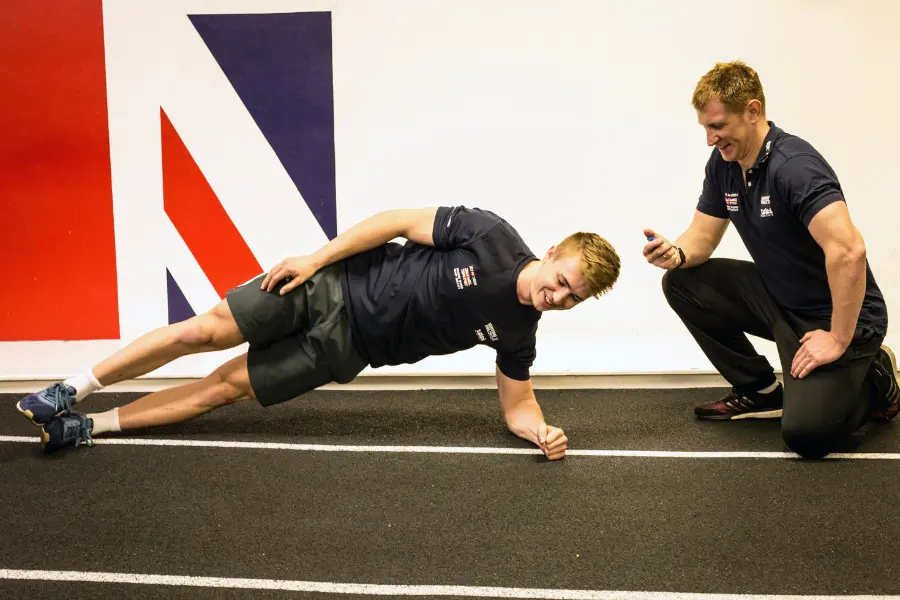
Now that you have an idea of what to avoid, how do you decide what makes a good strength coach for you?
Here are the four main things I would look for.
#1 – Knowledge & Qualifications.
As I mentioned above, the barrier to entry for personal training is very low, so the first thing I would look for is a strength coach is adequate qualifications that demonstrate ongoing learning and development.
As a minimum, I would expect an undergraduate degree (BSc) in sports science, coaching or similar. Nowadays, however, it’s the norm to have postgraduate qualifications (Master’s or higher), specifically in strength & conditioning.
Taking a minimum of 3 years to complete, these qualifications demonstrate ongoing learning and dedication, but it’s important to remember it’s not the knowledge itself that’s important, but rather its application, that makes the best coaches.
Something else that may help is the coach’s affiliation with a professional body such as the UKSCA, NSCA or ASCA. These require the coach to demonstrate the practical application of their coaching before they can become accredited.
#2 – Understanding Cycling.
Having the right qualifications demonstrates the minimum level of competency you can expect from your coach, but to go to the next level, I would investigate whether the coach understands the needs and demands of cycling (specifically, the type of cycling you do and the level at which you do it).
As endurance activities like cycling are at the opposite end of the spectrum to strength training they have the potential to stunt each other’s development if not managed correctly. Obviously, this is counterproductive and the opposite of what we’re after.
Understanding when and how hard to push is the key to using strength training to augment your cycling performance. As a strength coach, it can become all too easy to fixate on your gym metrics, but having a deeper understanding of your goals allows the better coach to step back when necessary.
Has the coach ridden themselves or (even better) do they have a track record of success when working with cyclists?
#3 – Rapport & Empathy.
One of the most important skills a strength coach can have is the ability to build a meaningful relationship with the people they work with.
No matter how dedicated you are, it’s unlikely that you have as much time to devote to your training as a pro-rider. Therefore, you will have other priorities in your life that your training must work alongside.
This means, pulling back when your cycling takes priority (most of the year) and understanding if you have a business trip/family commitments and can’t do the session this week.
A good coach will get you results, but a great coach will build trust, get you to enjoy your sessions and become satisfied with your improvements.
#4 – Track Record.
Other than the pieces of paper qualifications give a coach, the only way to truly assess their capabilities (and the other things I’ve mentioned above) is by them demonstrating a track record of success with other riders like you.
Have they coached riders with similar goals to yourself?
Do they understand your situation and how did they manage this in the past?
Check out the coach’s reviews and testimonials and see what their past clients/athletes have to say. A good coach will provide links to their client’s social media profiles, so reach out to them and ask questions beforehand.
Conclusion.
Hiring a strength coach alongside a cycling coach can be a significant investment, so it’s not one to take lightly. That being said, if you’re serious about becoming a better rider it’s something that has the potential to provide enormous benefits both on and off the bike for years to come.
Use the advice I’ve provided above, do your research and hire the coach that’s right for you.
A Bit About Me…
There are many great coaches out there and I’m obviously biased, but I believe I embody everything I’ve written about above and could be a great coach for you.
I’ve been a cycling-specific strength coach since 2014, having worked with some of the best coaches and riders on the planet at British Cycling, subsequently founding Fast Fit Strong in 2017. I earned an MSc in Strength & Conditioning in 2016 (which took 5 years to complete) and I am a UKSCA-accredited coach.
Before that I worked in a number of other sports, most notably rugby union; working with Sale Sharks, who won the European Challenge Cup in 2005 and the Guinness Premiership in 2006 and boasted world-class players like Jason Robinson, Andrew Sheridan, Charlie Hodgson and Sebastien Chabal.
I love helping people get better to achieve their dream of becoming the best cyclist they can be. I now coach clients all over the world using my online coaching packages and work closely with them (and their coaches) around their daily lives and other commitments!
The Proof.
Here are some testimonials from some of the riders I have coached:
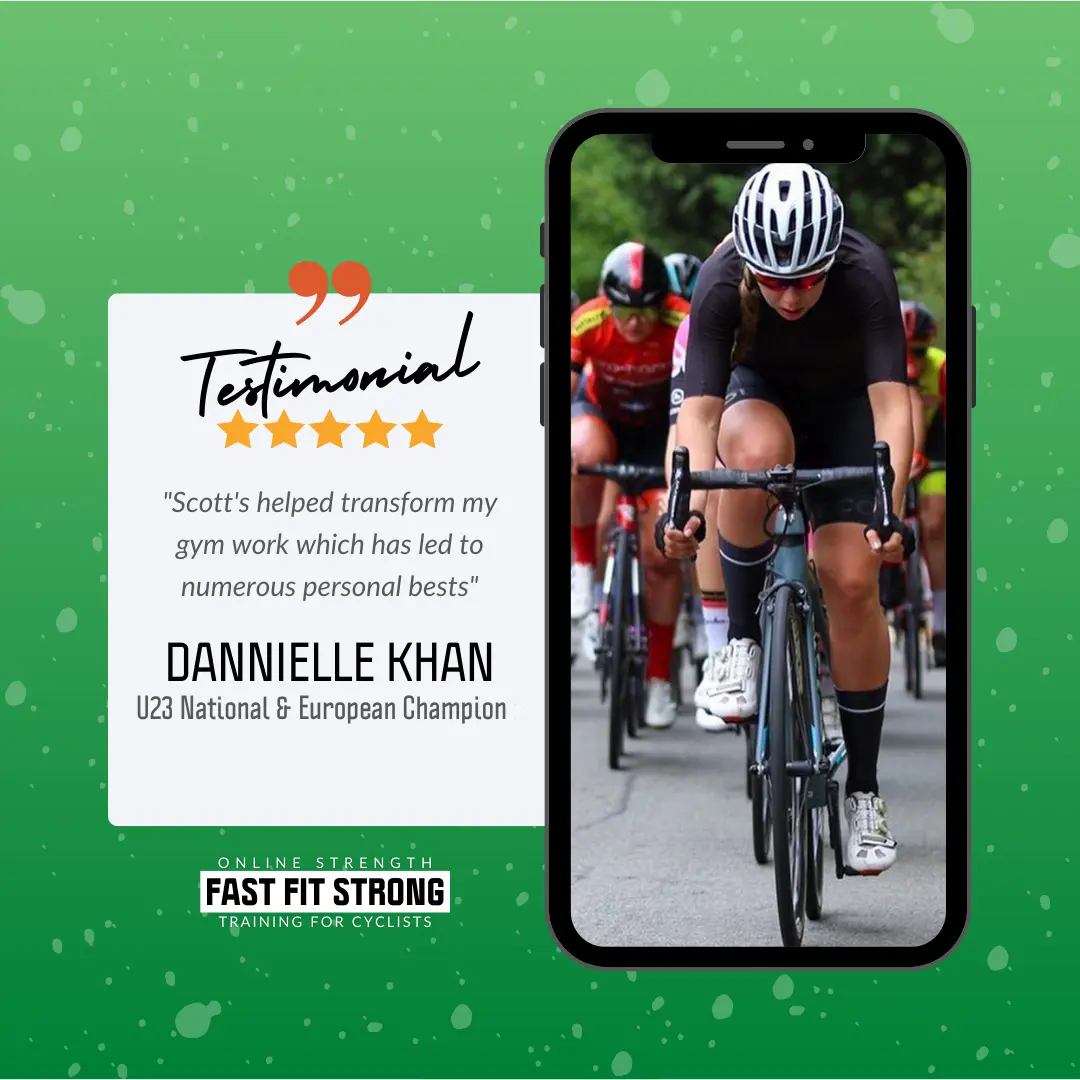
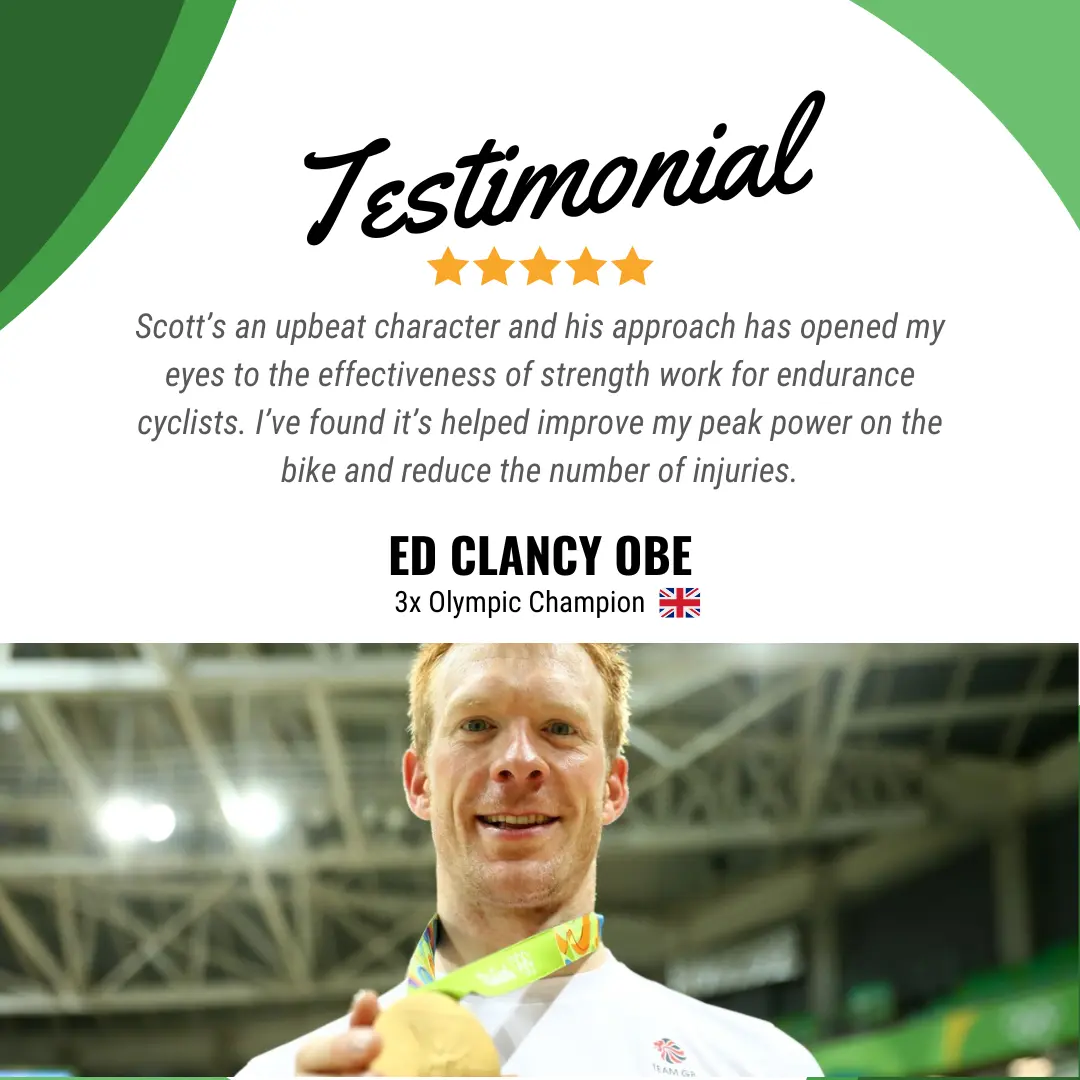
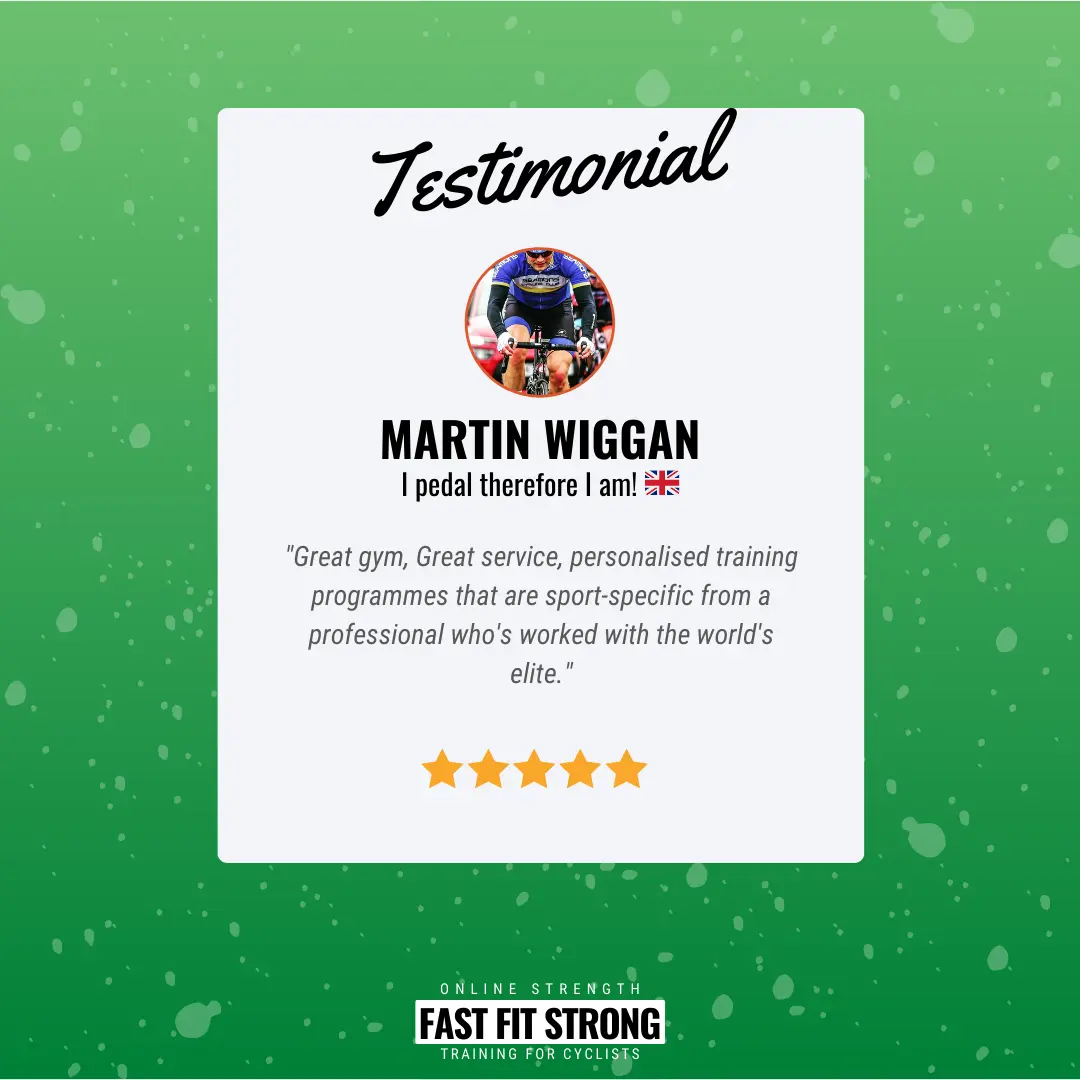
My Programs.
If you’d like to learn more about the packages I offer, get in touch or take a look at my prices page on this website.
Essentially, there are three tiers of programming.
- Programs – These are fixed-duration, pre-planned programs written with specific goals/times of year in mind.
- Teams – Regular programming throughout the cycling year.
- Bespoke Programming – Individual one-to-one coaching based on your individual needs and circumstances.
Choose the right one for you and I’ll see you on the inside.
